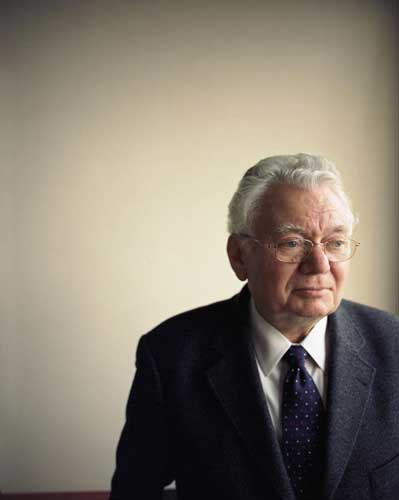Credo: Thomas Buergenthal
Holocaust survivor and judge at the International Court of Justice, 74

Your support helps us to tell the story
From reproductive rights to climate change to Big Tech, The Independent is on the ground when the story is developing. Whether it's investigating the financials of Elon Musk's pro-Trump PAC or producing our latest documentary, 'The A Word', which shines a light on the American women fighting for reproductive rights, we know how important it is to parse out the facts from the messaging.
At such a critical moment in US history, we need reporters on the ground. Your donation allows us to keep sending journalists to speak to both sides of the story.
The Independent is trusted by Americans across the entire political spectrum. And unlike many other quality news outlets, we choose not to lock Americans out of our reporting and analysis with paywalls. We believe quality journalism should be available to everyone, paid for by those who can afford it.
Your support makes all the difference.I believe...
Going back to Auschwitz wasn't easy. I had been in the Birkenau camp there, but most of the barracks were destroyed. It took me a while to orientate myself in terms of knowing where I had been and where my mother had been.
We recall childhood memories either when something really important and exciting happens or when something terrible happens, and we don't much remember things in-between.
You cannot have had my experience and not let it affect your work. You become more alert to the suffering of people. You know what it means to be a victim of human-rights violations. But I am not obsessed with the past. The past is the past; there are lots of terrible things happening now. I'm still working full-time – I don't have much time to think of the past.
I feel American, very much so. I have no connections to the place I was born [Czechoslovakia], as we were on the run.
The world has learnt from the Holocaust, but probably not enough. There was no international system for the protection of human rights, and that exists today. I think that has saved a lot of lives, but of course it hasn't put an end to other genocides that have taken place.
I am not one of these people who are cynical about everything. I believe we've made progress, we're making progress. The worst thing we can do is just give up.
I've always wanted to write my memoirs – it was just a question of finding the time. Then I decided if I didn't do it now, I never would, so I started. I was afraid it would bring back nightmares, but it didn't really.
It's one thing to write a book about what happened to you as a child. It's another to write an autobiography where you brag about all you've achieved. That's not my style. Besides, my wife wouldn't let me.
'A Lucky Child: A Memoir of Surviving Auschwitz as a Young Boy', by Thomas Buergenthal, is published by Profile at £15
Join our commenting forum
Join thought-provoking conversations, follow other Independent readers and see their replies
Comments